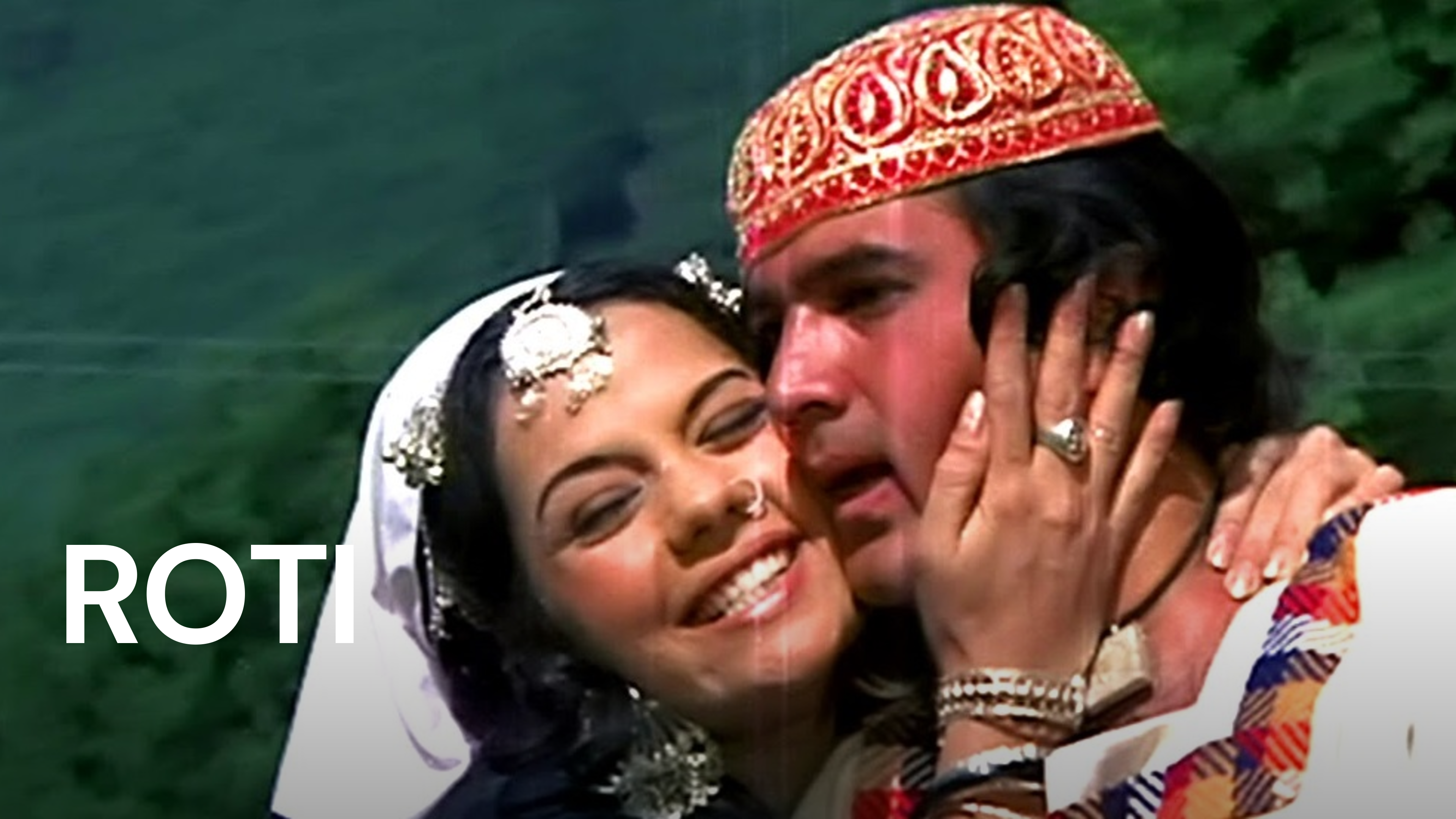navneetdalal.com – Released in 1974, Roti is a Bollywood drama that stands out for its deep emotional impact, tackling themes of poverty, family values, and the responsibility one holds towards society. Directed by Manmohan Desai and produced by A.K. Nadiadwala, Roti stars the legendary actor and heartthrob of the time, Rajesh Khanna, alongside an ensemble cast that includes Mumtaz, Nirupa Roy, and Ajit. The film’s compelling narrative, coupled with powerful performances, made it a significant box office hit and a much-discussed film of the 1970s.
Plot Overview
At the heart of Roti lies the story of Shankar (played by Rajesh Khanna), a hardworking and idealistic man who struggles to support his family. Shankar’s life revolves around his love for his mother (played by Nirupa Roy) and his desire to give his family a better future. His father’s absence, after his death, puts the responsibility of family welfare squarely on Shankar’s shoulders.
Shankar’s journey begins with his decision to fight against the system that exploits the working class, even though he has no formal education. He works relentlessly to earn his daily bread and is not afraid of taking risks to bring justice to the underprivileged. Despite his selflessness, his life becomes a series of difficult struggles as he contends with the harsh realities of society, including the greed of landlords, unscrupulous businessmen, and the growing sense of corruption.
The film also delves into Shankar’s personal life. He marries Aarti (played by Mumtaz), who, while initially supporting Shankar’s ideals, soon finds herself caught between her husband’s revolutionary goals and the demands of her own survival. As Shankar becomes increasingly consumed by his fight for justice, he faces a moral dilemma: Should he continue to pursue his ideals at the cost of his own family’s happiness and security?
Performances
Rajesh Khanna’s performance in Roti is widely regarded as one of his most impactful. As Shankar, he beautifully captures the pain, determination, and self-sacrifice that his character undergoes while battling against societal injustices. His portrayal of a man torn between his duties as a husband and father and his desire to fight for the greater good adds depth to the film’s emotional narrative.
Mumtaz, in the role of Aarti, delivers a nuanced performance, showing her character’s internal struggle between supporting her husband and ensuring the well-being of her family. Her chemistry with Rajesh Khanna added warmth to the film, making their on-screen relationship relatable and heartfelt.
Nirupa Roy, a stalwart of mother roles in Bollywood, brings her signature emotional depth to the role of Shankar’s mother, who represents the traditional values and sacrifices that hold the family together. The supporting cast, including Ajit and others, further enrich the story, giving the film its layered emotional texture.
Music and Cultural Impact
The music of Roti, composed by Laxmikant-Pyarelal with lyrics by Anand Bakshi, is another key aspect of the film’s success. The soundtrack features memorable songs such as “Roti Ke Liye” and “Dil Ke Jharokhe Mein,” which perfectly encapsulate the struggles and dreams of the protagonist. These songs, sung by renowned playback singers like Kishore Kumar and Lata Mangeshkar, added to the emotional resonance of the film and became popular with audiences.
The film’s music not only enhanced the storytelling but also conveyed the social messages the film sought to impart. Roti is often remembered for its ability to entertain while addressing important societal issues, making it both commercially successful and critically acclaimed.
Legacy
Roti became a significant film in the Bollywood landscape of the 1970s, known for its strong social commentary and its reflection of the struggles faced by the common man. The film resonated with audiences due to its portrayal of the working class’s efforts to survive and fight against exploitation. Its themes of social justice, sacrifice, and family values remain relevant even today, making it an enduring part of Indian cinema.
Rajesh Khanna’s performance in Roti further cemented his status as one of the most iconic stars of the era, with his portrayal of a man grappling with personal and social responsibilities resonating deeply with the public. The film also contributed to the genre of socially conscious Bollywood films that began to take shape during this period.
Roti remains a classic in Bollywood’s history, not just for its performances and music, but also for its meaningful exploration of the human condition. The film’s success lies in its balance of entertainment and social messages, making it both a popular and thought-provoking work that continues to inspire and entertain audiences.
